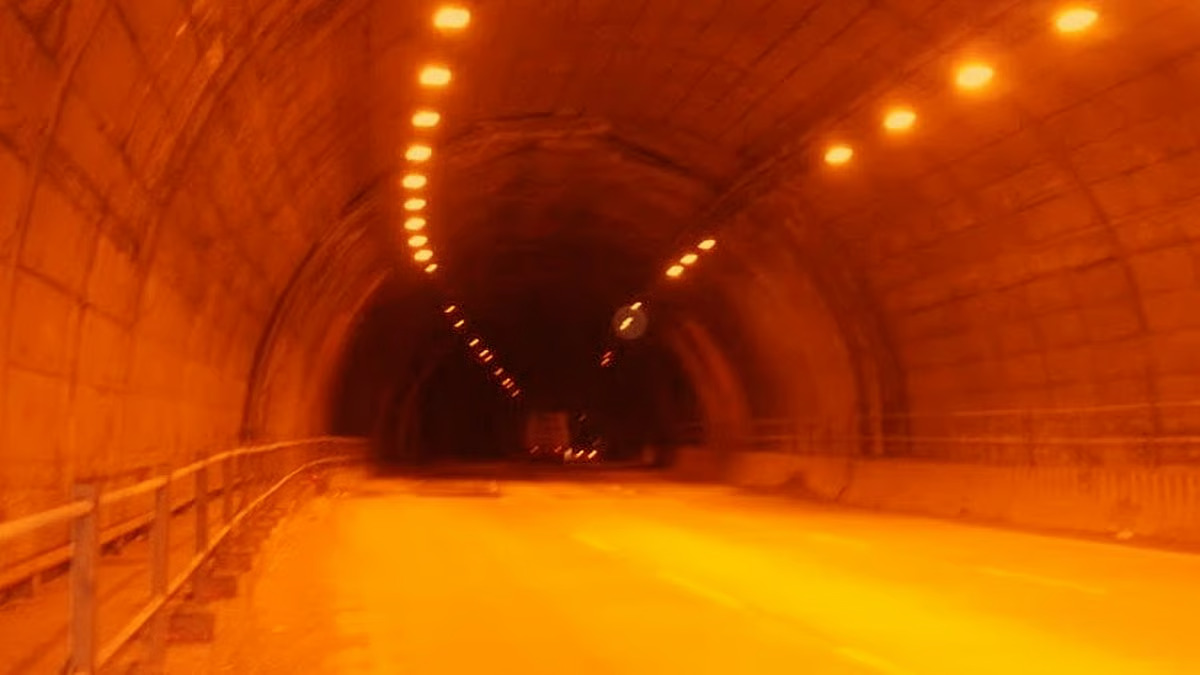Pune Metropolitan Region Development Authority (PMRDA) is moving forward with plans for a transformative infrastructure project—the Yerawada-Katraj twin tunnel.
The civic body is currently in the final stages of appointing a consultant to conduct a pre-feasibility study that will lay the foundation for the ₹8,000 crore project, designed to establish a seamless 20-kilometre north-south connectivity corridor across the city. Officials have confirmed that three consulting firms have submitted proposals to undertake the pre-feasibility analysis. The evaluation process is now underway to identify the most technically competent agency capable of executing the study, which is a critical precursor to the preparation of a detailed project report (DPR).
Envisioned as a twin tunnel system, the proposed infrastructure will comprise two distinct tunnels—each designated for one-way vehicular traffic. By creating a direct subterranean link between the northern and southern ends of Pune, the project is expected to significantly ease the burden on existing arterial roads such as Shankarsheth Road and Satara Road, which currently experience persistent bottlenecks due to surging population and vehicle density. Urban planning experts have hailed the project as a potential gamechanger for Pune’s mobility ecosystem. According to officials overseeing the preliminary stages, the pre-feasibility study will encompass a wide range of assessments—including topography, geotechnical stability, hydrology, and existing traffic flow patterns—to evaluate whether the tunnel can be viably integrated into the city’s existing and projected infrastructure framework.
Additionally, a thorough environmental and social impact analysis will be conducted, as per national and state mandates. The consultant will be required to assess the ecological implications of boring through the city’s complex hilly terrain, along with the potential displacement or land acquisition required for construction. Officials stressed that public consultation will form a central pillar of the study, ensuring that citizen voices are incorporated into the planning process from the outset. The financial feasibility of the project is another cornerstone of the upcoming study. With early estimates pegging the cost at approximately ₹400 crore per kilometre, the project represents a significant public investment. Multiple funding models are being considered, including various forms of public-private partnership (PPP), which could offer the advantage of shared risk and operational efficiency. Revenue generation through tolling is also likely to be explored, though the final model will depend on findings from the DPR stage.
Officials suggest that apart from reducing travel time and fuel consumption, the Yerawada-Katraj tunnel could also yield substantial environmental benefits by curbing vehicular emissions through smoother traffic flow. This aligns well with Pune’s broader goals of creating an eco-friendly and zero-carbon mobility environment, particularly as the city grapples with the twin pressures of rapid urbanisation and climate change. “The north-south corridor has long been one of the most congested urban routes in Pune,” a senior official said. “The proposed tunnel system is being conceived not just as an engineering project but as an integrated solution that supports greener, faster, and more equitable transport for all residents.”
Sustainability advocates and urban designers have expressed cautious optimism about the initiative. They note that such large-scale projects often risk excluding lower-income and non-motorised commuters if not planned inclusively. Experts are urging PMRDA to incorporate dedicated emergency response protocols, pedestrian access strategies at tunnel terminals, and ensure that toll models do not disproportionately impact daily wage earners or small businesses that rely on affordable mobility. In this regard, PMRDA’s commitment to conducting public consultations during the pre-feasibility phase is seen as a promising step toward equitable urban planning. Officials confirmed that stakeholder meetings will be held with local residents, transport experts, environmentalists, and civil society organisations to ensure the project is both socially inclusive and environmentally sound.
The tunnel alignment, design standards, and terminal infrastructure will be finalised in the detailed project report phase, which will follow once the pre-feasibility study is completed. This second phase will also delve into engineering challenges, particularly the risks involved in tunnelling through the hilly southern landscape of Pune, which presents geotechnical complexities including possible groundwater interactions and seismic vulnerabilities. City planners emphasise that while the financial investment is substantial, the long-term gains in decongestion, travel time savings, air quality improvement, and climate resilience could make it worthwhile. A successful implementation could also serve as a blueprint for other Indian cities looking to develop tunnel infrastructure as an alternative to surface road expansion, which often leads to land conflicts and ecological damage.
Although the tunnel project is still in its early planning stage, it is being viewed as an essential element of Pune’s future transport blueprint—particularly in the context of transitioning toward low-carbon infrastructure and climate-smart cities. As the city continues to grow, infrastructure of this scale may become vital not just for traffic management, but for ensuring inclusive access, environmental justice, and long-term urban sustainability. If the project moves forward as scheduled, the city could witness groundbreaking on the Yerawada-Katraj twin tunnel within the next two to three years. For now, the focus remains on conducting a robust, evidence-based pre-feasibility study that lays the groundwork for transparent, citizen-centric, and environmentally responsible urban development.
Also Read : Pune Stations Set for Grand Revamp Launch


